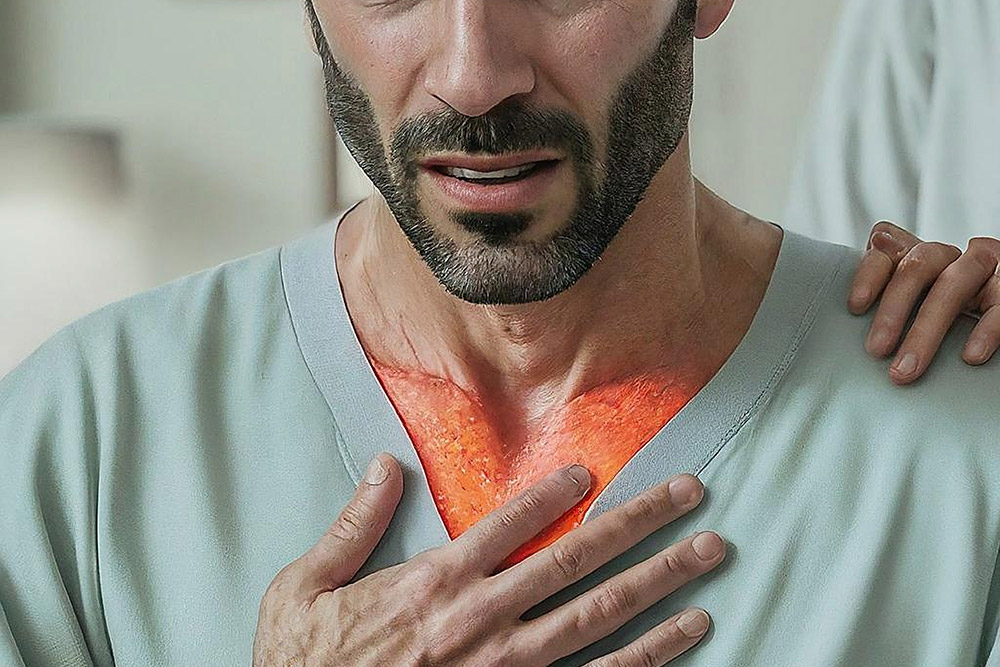Expert Treatment for Acid Reflux by Dr. Bharat Pothuri
Dr. Pothuri uses a step-by-step approach:
Medical History and Physical Exam
He reviews your symptom pattern (heartburn, regurgitation, epigastric pain), diet, lifestyle, medications and performs a focused abdominal and chest exam.
Upper Endoscopy (EGD)
A flexible scope inspects your esophagus, stomach and duodenum for inflammation, ulcers, hiatal hernia or Barrett's changes.
Esophageal pH and Impedance Monitoring
- 24-hour pH study quantifies acid exposure in the lower esophagus.
- Impedance testing detects both acid and non-acid reflux events and correlates them with your pain episodes.
Barium Swallow X-Ray
Evaluates structural issues such as strictures, motility disorders or hiatal hernia that can contribute to reflux and epigastric discomfort.
Esophageal Manometry (as needed)
Measures esophageal muscle contractions and lower esophageal sphincter pressure, especially if surgical intervention is being considered.
Frequently Asked Questions
What causes acid reflux?
Acid reflux occurs when stomach acid flows back into the esophagus. Common triggers include large meals, fatty or spicy foods, caffeine, alcohol, smoking, obesity, hiatal hernia, and stress.
What lifestyle and dietary changes help manage reflux?
Eat smaller meals more frequently, avoid known trigger foods (citrus, tomatoes, chocolate, coffee, alcohol), quit smoking, lose excess weight, and elevate the head of your bed. Dr. Pothuri will customize a plan that fits your routine.
How long should I try diet changes before taking medicine?
Give diet and lifestyle modifications two to four weeks. If you still experience heartburn or regurgitation, it's time to discuss medication options with your doctor.
When are prescription medications needed?
If lifestyle changes alone don't control symptoms, Dr. Pothuri may recommend H2 blockers or proton pump inhibitors (PPIs) to reduce acid production and promote healing of the esophagus.
Are PPIs safe for long-term use?
Yes, under medical supervision. Dr. Pothuri will monitor you for potential side effects and adjust treatment as needed to ensure safety and effectiveness.
When should surgery be considered?
Surgery or endoscopic procedures are considered when medications and lifestyle changes fail to control symptoms or if complications arise. Minimally invasive options like fundoplication can provide lasting relief.












